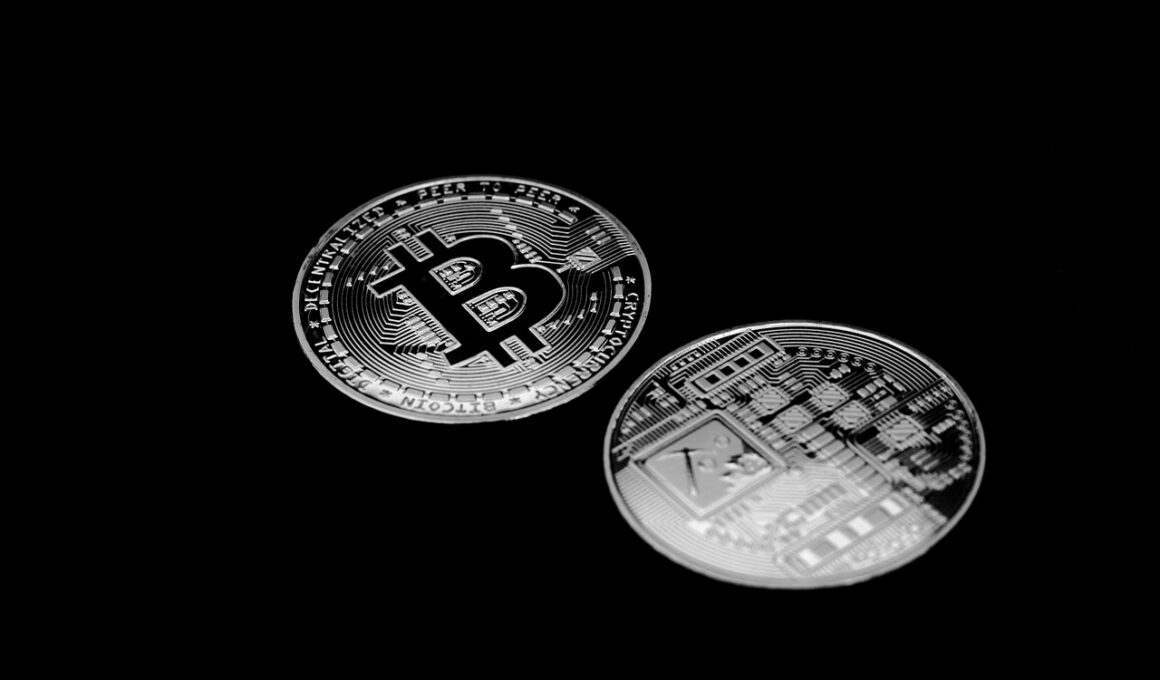Altcoins Use Cases: Beyond Just Digital Currency
Altcoins, shorthand for alternative coins, have evolved significantly beyond their initial conception as merely cryptocurrencies competing with Bitcoin. In fact, the vast majority of altcoins today are designed with specific use cases that address various industry challenges. Many of these coins facilitate decentralized finance (DeFi) applications, enabling users to lend, borrow, and earn interest on their assets without relying on traditional banks. Additionally, certain altcoins focus on enabling smart contracts, which automatically execute transactions when predetermined conditions are fulfilled. For instance, Ethereum is the leading platform for such capabilities, empowering developers to create innovative decentralized applications. Moreover, many altcoins are used for governance purposes within their ecosystems, allowing token holders to vote on important issues affecting the network. Another interesting aspect of altcoins lies in their ability to provide tokens for unique assets like real estate, art, and collectibles, thereby reducing barriers to ownership. Furthermore, privacy altcoins have gained traction for their focus on confidentiality in financial transactions. Consequently, altcoins are proving to be versatile and indispensable tools in the expanding digital landscape.
Decentralized Finance and Lending Protocols
One primary use case for altcoins is within the realm of decentralized finance, or DeFi, which seeks to reimagine traditional financial systems through blockchain technology. In this environment, altcoins serve not only as mediums of exchange but also facilitate a range of financial services that are typically offered by banks, enabling transactions through smart contracts. Popular altcoins like Aave and Compound are prominent examples of lending protocols within the DeFi ecosystem. These platforms empower users to lend and borrow various cryptocurrencies, all through peer-to-peer interactions, eliminating the need for intermediaries who usually charge fees. This democratization of finance allows users more control over their funds while accessing competitive interest rates. By depositing their altcoins, users can earn interest, creating passive income streams akin to traditional savings accounts. Moreover, liquidity pools are foundational components in DeFi, where users provide assets to facilitate trading on decentralized exchanges in return for a share of trading fees. This method enhances the efficiency of trading and enables better price discovery, enhancing overall market liquidity. The versatility of altcoins in this sector continues to grow as DeFi matures.
Another exciting aspect of altcoins is their role in creating and supporting non-fungible tokens, or NFTs. NFTs represent unique digital assets verified through blockchain technology, ensuring authenticity and ownership. While Ethereum is the primary platform facilitating NFT creation, many altcoins absorb this functionality, allowing artists, gamers, and collectors to trade and showcase digital art, rare collectibles, and in-game assets. Unlike cryptocurrencies, which are interchangeable, NFTs hold individual significance, often leading to higher valuations based on demand and uniqueness. Altcoins such as Flow and Tezos have gained popularity for their efficiency and user-friendliness, allowing faster and cheaper transactions in the NFT Marketplace. In the gaming industry, altcoins facilitate play-to-earn models that incentivize participation through the opportunity to earn and trade tokens for in-game achievements. This mechanism empowers players to monetize their gaming experiences, revolutionizing the traditional business model. Furthermore, NFT-based initiatives are showing promising potential in transforming sectors such as fashion and music by providing artists with novel revenue streams. Overall, the expansion of altcoin use in NFTs highlights their pivotal role in interoperability across diverse ecosystems.
Utility Tokens and Ecosystem Participation
Utility tokens are another vital function of altcoins, designed to provide access to specific services within their ecosystems while fostering ecosystem participation. These tokens are generally generated during an initial coin offering (ICO) and are integral to the functioning of their platforms. For instance, Binance Coin (BNB) is a utility token that offers reduced trading fees on the Binance exchange and further powers various applications within the Binance Smart Chain. Similarly, other altcoins allow users to stake tokens and earn rewards, thereby stimulating network activity and security. Through staking mechanisms, token holders can lock up their assets temporarily to participate in the network’s consensus process. This approach not only helps secure the blockchain but also rewards users with more tokens, creating an incentive structure that enhances not only user engagement but also overall liquidity. Development across the industry continues to reveal innovative use cases for utility tokens. They are now being integrated into social media platforms, decentralized marketplaces, and even reward programs, expanding their significance beyond mere fundraising. Consequently, the potential for altcoins to redefine engagement across industries cannot be overstated.
Another prominent use case for altcoins is their application in remittances and cross-border payments. Traditional remittance services often come with high fees and delays due to intermediaries. Altcoins address these concerns by leveraging blockchain technology to facilitate instant and cost-effective transactions. For example, Ripple’s XRP serves as a bridge currency that allows financial institutions to settle cross-border payments efficiently. Various altcoins specialize in enhancing transaction speeds and minimizing fees in this domain. By utilizing altcoins, users can send money across borders in a matter of seconds, bypassing traditional banking routes that involve multiple intermediaries. This capability is particularly beneficial for individuals working abroad who send remittances back home, enabling them to keep more of their hard-earned money. Furthermore, as countries increasingly adopt digital currencies and recognize the role of blockchain technology, we can expect altcoins to become more prominent in international finance. Enhanced security, transparency, and accessibility are achievable when employing altcoins, ultimately revolutionizing how we perceive and conduct international transactions. This significant disruption highlights the evolving landscape of future finance.
Privacy Coins and Secure Transactions
Privacy coins are an emerging niche within the altcoin landscape, focusing on providing users with anonymity and confidential transactions. In contrast to conventional cryptocurrencies, which often leave transaction trails visible on public ledgers, privacy coins like Monero and Zcash utilize advanced cryptographic techniques to obscure transaction data. These coins enable users to maintain their financial privacy while transacting without fear of being surveilled or having their data exploited. Such features appeal to various groups, including individuals concerned about their financial confidentiality and businesses requiring privacy in transactions. Additionally, as regulatory scrutiny increases on cryptocurrency transactions, the demand for privacy coins is likely to rise as users seek to protect their identities and financial behaviors. Enhanced transaction security helps safeguard against theft and fraud, presenting a compelling case for adopting privacy-friendly altcoins. Moreover, many privacy coins also incorporate features like stealth addresses and ring signatures to further enhance anonymity levels, allowing users to engage in commerce freely. The growing conversation around financial privacy underscores the significance of these technologies and highlights their evolving role within the decentralized ecosystem.
Lastly, altcoins have successfully made inroads into the realm of tokenized assets, representing changes on how various assets can be traded and owned. Tokenization is the process of creating digital tokens to represent ownership rights to real-world assets, including real estate, commodities, and financial instruments. By utilizing blockchain technology, tokenization enhances liquidity and accessibility, allowing fractional ownership of high-value assets through altcoins. Platforms such as RealT and Myco allow investors to purchase fractions of properties via tokens, making real estate investing more attainable for everyday individuals. Similarly, tokenization can be applied to art, enabling artists to share ownership of their pieces while retaining copyrights. This trend empowers creators and enables diversification of investment portfolios among a broader range of assets. Furthermore, the concept of digital ownership broadens market access, increasing participation across demographics. As altcoins facilitate the trading and investment of tokenized assets, they are poised to disrupt traditional investment and ownership models, paving the way for innovation across sectors. This movement echoes the broader trend of embracing digital assets in today’s interconnected world.


